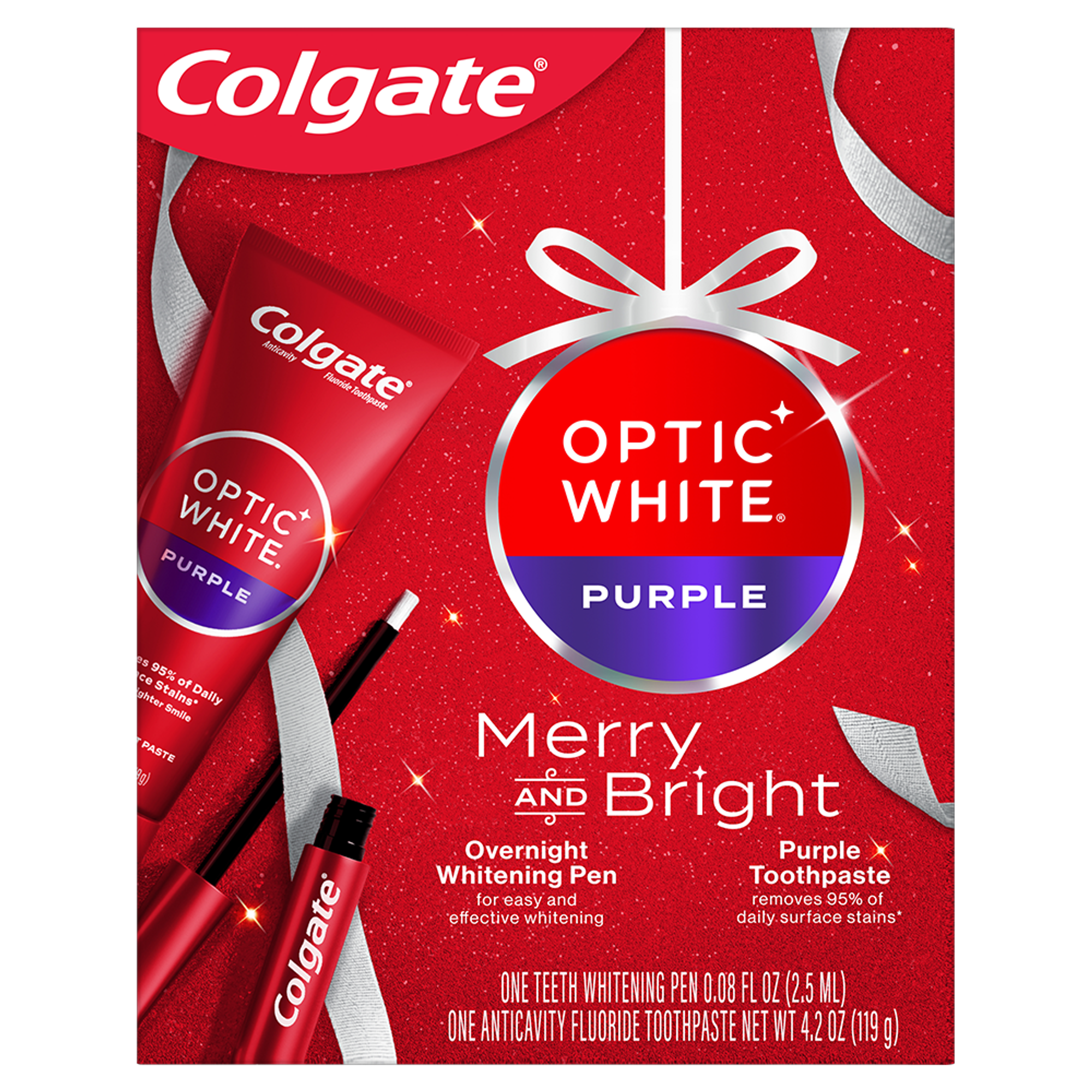What Teeth Whitening Products Are Available?
There are a number of whitening products on the market, most of which fall into these categories.
- Whitening polishes and toothpastes. These types of whitening products usually contain tiny abrasive particles that lift away surface stains to reveal a whiter smile. Some may also contain bleaching agents like those described below.
- Over-the-counter whitening products. These over-the-counter products contain whitening agents like hydrogen peroxide or carbamide peroxide, which penetrate the enamel surface to break down pigments responsible for staining. In addition to whitening toothpaste, they can be found in whitening gels, trays, pens, or strips.
- Professional whitening treatments. For dramatic whitening results, talk to your dentist about in-office and take-home professional whitening treatments. These professional options contain higher concentrations of bleaching agents, helping you to achieve brighter results in a shorter time. Your dentist can formulate your plan based on your specific needs and supervise the process, making this the safest way to whiten.

Overnight Whitening Pen
A teeth whitening pen with an enamel safe whitening serum formula designed for no tooth sensitivity.

Why Does Your Crown Look Whiter Than Your Natural Teeth?
When a dentist puts in a crown, they are careful to make sure it matches the natural teeth's color. Life happens, and over time, your natural teeth may begin to yellow or stain. This can happen for a variety of reasons: staining from food, drink or tobacco; discoloration from plaque or tartar; medical conditions; thinning enamel; or simply just age. While your crown can pick up surface stains just like your natural teeth, it won’t be affected by the other factors. Your crown does not, so it could look whiter than the surrounding teeth.
Will Teeth Whiteners Affect Your Crown?
Most crowns are made from porcelain or composite porcelain. According to the American Dental Association, whitening treatments do not work on these types of materials. You may be able to remove surface stains. However, your crowns will never be brighter than the color they were when your dentist put them in. So if you notice that your natural teeth are yellowing or developing stains, it is best to whiten your teeth before you have a crown placed. That way, your dentist can formulate your crown to match your natural teeth at their best.
Frequently Asked Questions About Whitening Crowns
Can teeth whitening potentially damage my porcelain crown?
No. Dental crowns are made from very strong, durable materials and won’t be damaged by whitening products.
Are there any risks associated with teeth whitening when you have crowns?
No. Teeth whitening is generally safe, but can cause tooth sensitivity or gum irritation for some people, especially if not done correctly. The risk of these side effects is no greater for people with crowns. Continue to follow manufacturer or dentist instructions when whitening your teeth to keep your risk of side effects to a minimum.
How can I maintain the color of my crowns after teeth whitening?
To keep your crowns bright and stain-free, brush twice a day with a whitening toothpaste and visit your dental hygienist for regular cleanings. Try to limit strongly colored foods and drinks like tea, coffee, red wine, tomatoes, and spices. And if you smoke tobacco, cutting down or quitting will help to keep both your crowns and your natural teeth looking great.
If you want to whiten your teeth and have one or more crowns, talk to your dentist to find out the best treatment options to make and keep your smile bright.
This article is intended to promote understanding of and knowledge about general oral health topics. It is not intended to be a substitute for professional advice, diagnosis or treatment. Always seek the advice of your dentist or other qualified healthcare provider with any questions you may have regarding a medical condition or treatment.
ORAL HEALTH QUIZ
What's behind your smile?
Take our Oral Health assessment to get the most from your oral care routine
ORAL HEALTH QUIZ
What's behind your smile?
Take our Oral Health assessment to get the most from your oral care routine















